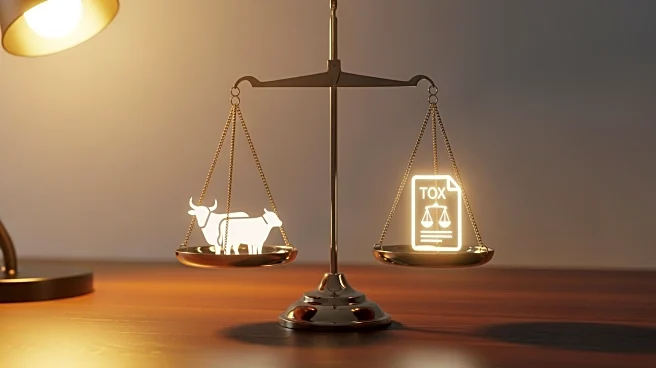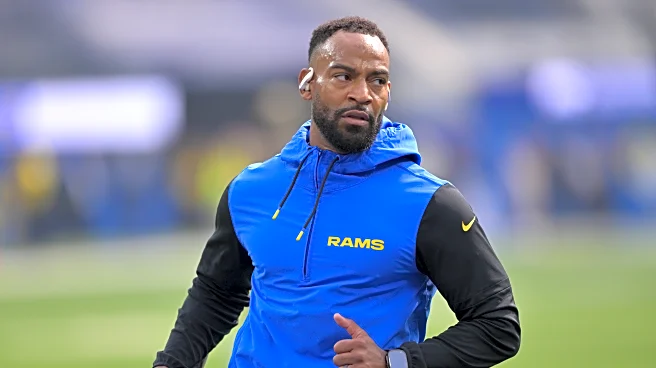What's Happening?
President Trump has implemented a series of economic policies that have sparked concerns about a potential shift towards 'degrowth,' a concept typically associated with reducing consumption and production. These policies include a trade war that has seen fluctuating tariffs on imports, affecting both consumer prices and industrial production. Additionally, Trump has reduced government subsidies for essential services, including Medicaid and food stamps, and cut funding for renewable energy and higher education. These actions have led to increased costs for consumers and a potential decrease in economic productivity. The administration's approach has been criticized for potentially leading to higher prices and reduced supply, impacting both low-income families and the broader economy.
AD
Why It's Important?
The implications of President Trump's economic policies are significant for various stakeholders in the U.S. economy. By reducing subsidies and increasing tariffs, the administration risks exacerbating economic inequality and slowing down economic growth. Low-income families may face higher living costs due to cuts in food stamps and Medicaid, while the reduction in renewable energy funding could hinder progress towards sustainable energy solutions. The trade war and its impact on industrial production could lead to job losses and increased uncertainty in the manufacturing sector. Furthermore, the potential long-term effects on higher education and scientific research could undermine the U.S.'s position as a leader in innovation and global competitiveness.
What's Next?
As the economic landscape continues to evolve under President Trump's policies, stakeholders will be closely monitoring the potential for a recession and the broader impacts on the U.S. economy. Businesses may need to adapt to changing trade dynamics and increased costs, while policymakers could face pressure to address the growing concerns over economic inequality and sustainability. The administration's approach to economic management may also influence future political debates and policy decisions, particularly in the context of upcoming elections and shifts in public opinion.
Beyond the Headlines
The ethical and cultural dimensions of President Trump's economic policies are also worth considering. The reduction in support for higher education and scientific research raises questions about the long-term societal impacts, particularly in terms of access to education and the advancement of knowledge. Additionally, the focus on protectionism and reduced consumption may reflect broader cultural shifts towards nationalism and self-reliance, challenging traditional economic paradigms and international cooperation.











